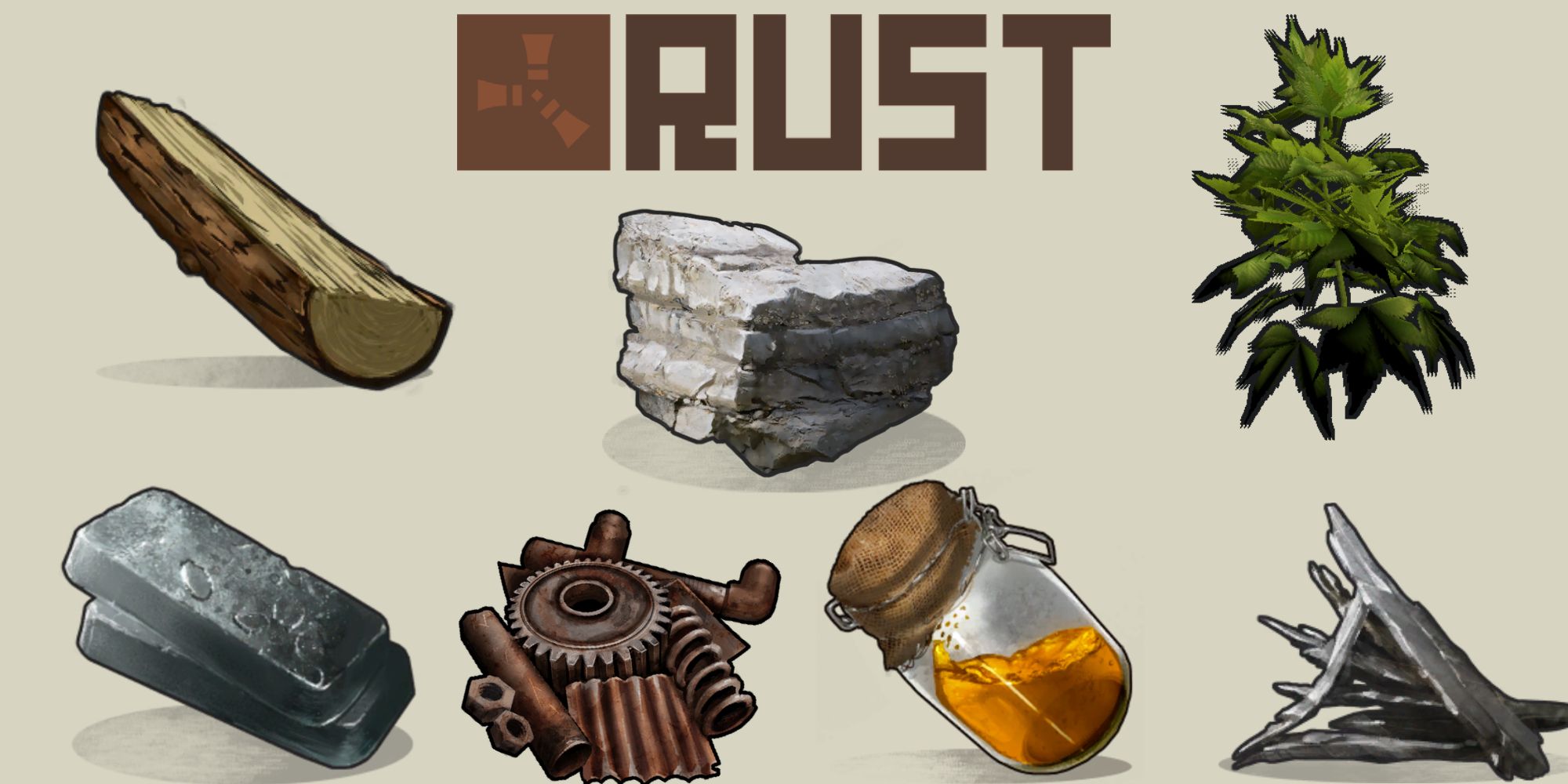
As a beginner playing Rust, it can be a hassle figuring out all of the necessary items to build, craft, and purchase essentials. With all of the new players entering the community on console, there are thousands of PMCs that need guidance to get started.
RELATED: Rust: The Best Weapons You Can Craft (& How To Make Them)
Getting off to a fast start and building up an arsenal early on is the best way to gain a noticeable advantage over the competition. One easy time-saver is not having to waste time knowing what to do with items or how to find them.
Updated on August 12, 2021 by Payton Lott: There are an endless number of useful items in Rust. This updated Rust item list includes five other things console players will want to farm as they progress in the wipe. Gamers will want to produce their own Gunpowder for PVP and craft more resistant armor later in the game. Also, finding alternative sources of fuel will give survivors more ways to keep their bases powered up. Follow these additional tips to collect the crucial items in Rust. Remember to store farmed materials in a safe place, as scavengers are always on the lookout for distracted players.
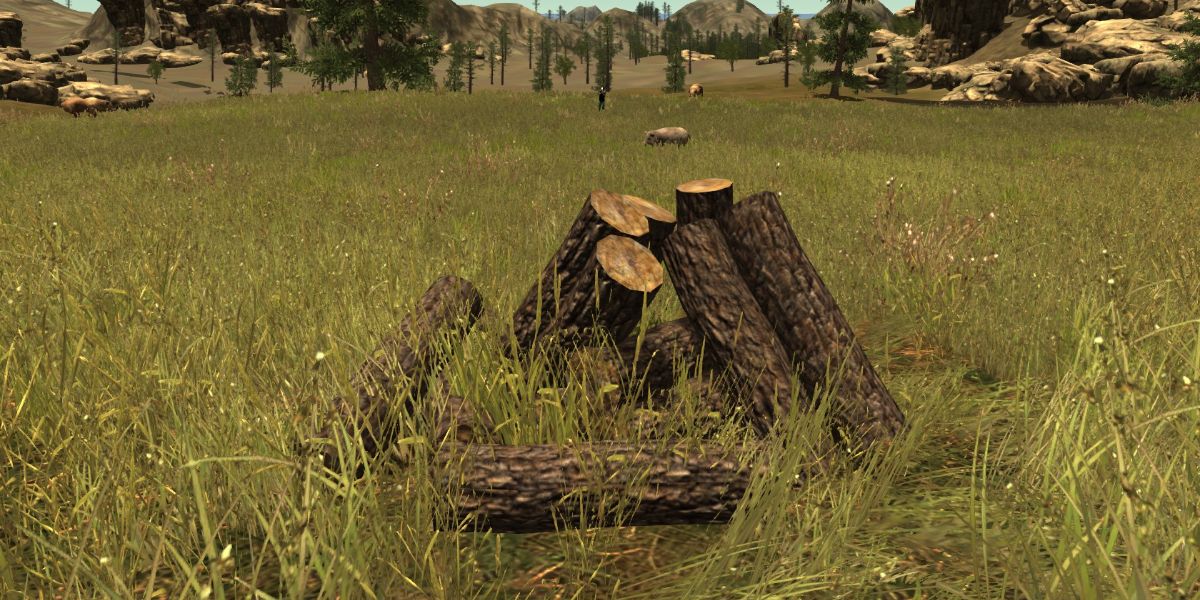
Survivors will need to collect as much wood as possible on wipe day. Trees are everywhere on Rust island, and all gamers need is a rock to chop them down. Wood is the most common building material in the early game, and players will need it to craft a hammer, get a building plan, and erect a base. Additionally, wood, along with the next item, are used to craft early game weapons and tools like the ones listed below.
- Hammer
- Building Plan
- Stone Hatchet
- Hunting Bow
- Campfire
- Storage Boxes
- Tool Cupboard
- Door Key
- Lock
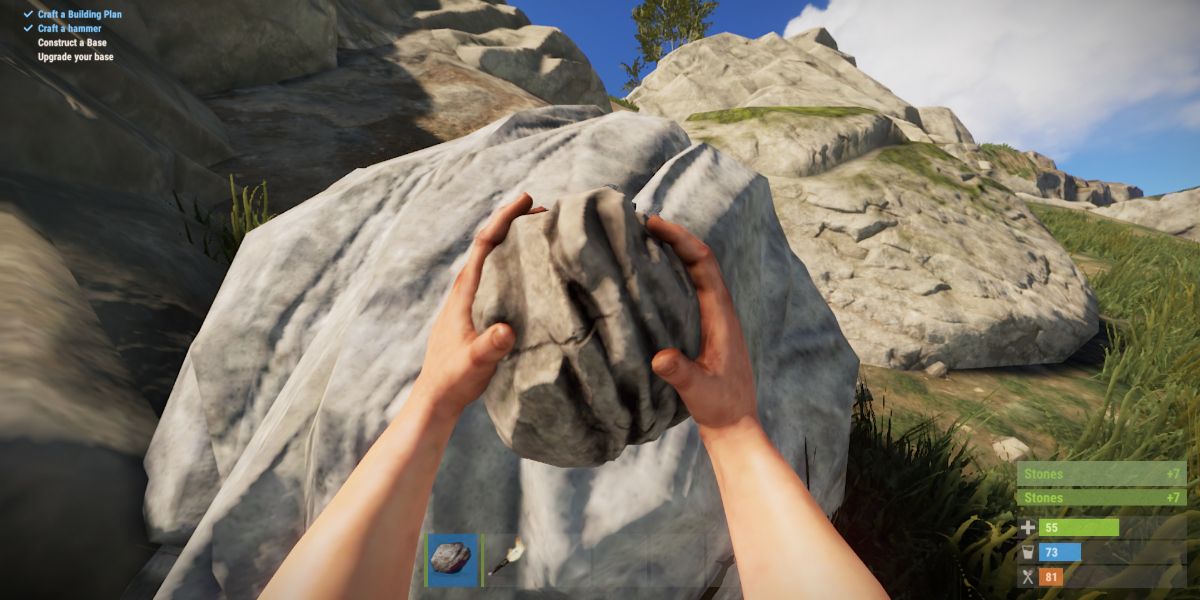
Like wood, stone is one of the four most important items to collect in the game. It is a more structurally sound building material but has a number of other uses. Stone can be mined from stone nodes throughout the map. Stone nodes are lone boulders that shimmer when approached. They can be mined with a rock, but a stone pickaxe is preferable. Listed below are a few relevant tools gamers will need stone to craft.
RELATED: Rust: Pro Tips You Need To Know
- Stone Pickaxe
- Stone Hatchet
- Arrows
- Handmade Shells
- Furnace/Large Furnace
- Barricades
- Stone Spear
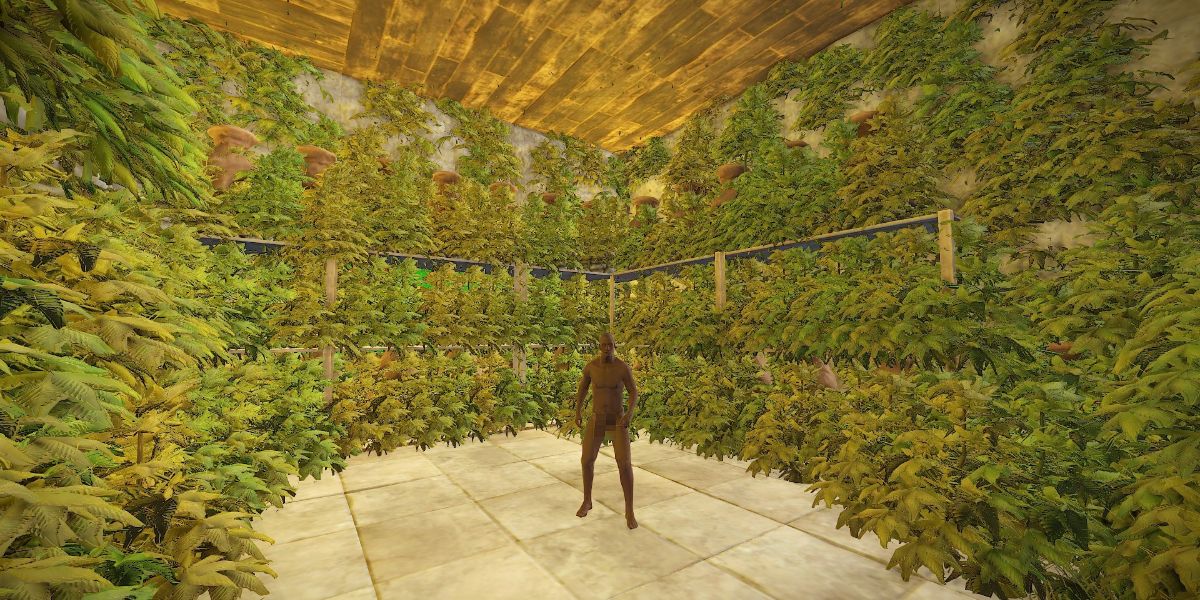
A crucial aspect of survival is protecting oneself from radiation and cold. Hemp plants provide cloth, which is the only ingredient needed to craft the Burlap set. The Burlap set provides a total of 8% radiation protection and 24% protection from cold. Cloth is also a necessary ingredient for many other essentials. See the Rust console item list below:
- Sleeping Bag
- Syringe
- Hunting Bow
- Low Grade Fuel
- Satchel Charge
- Bota Bag
- Water Purifier
- Torch
- Survey Charge
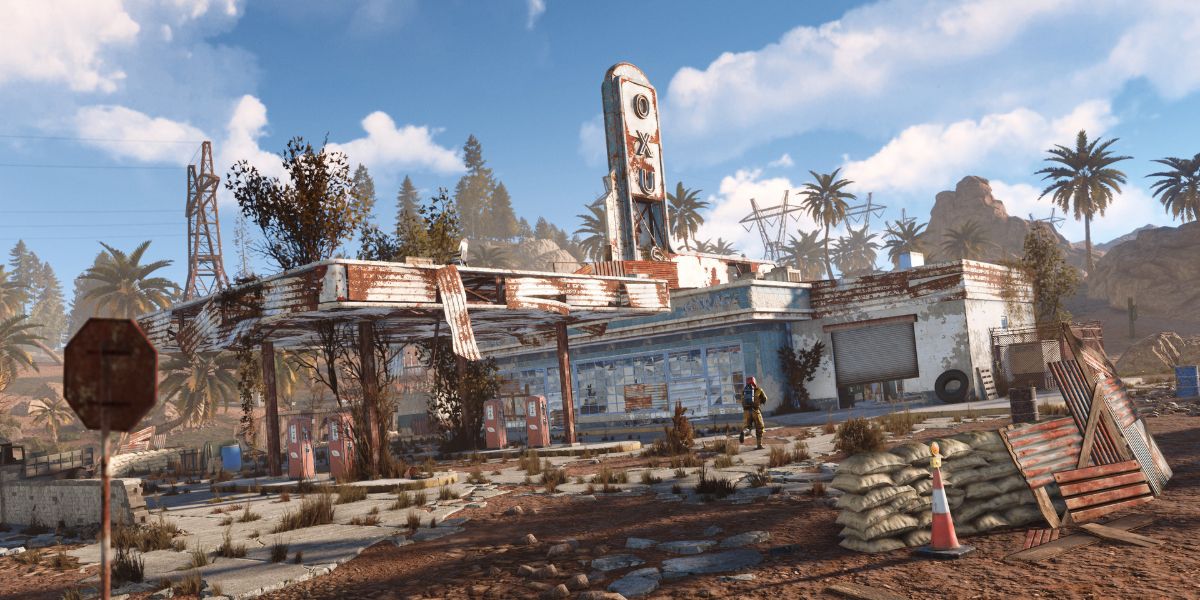
Survivors will use scrap to craft a handful of items, but it is primarily a currency. Scrap can be used to purchase weapons, armor, and other items from the safe zones in Rust. It is also the resource cost needed to research items for crafting. The Research Table is constructed with scrap as well. Along with wood and metal fragments, scrap is needed to construct workbenches which are used to craft higher level items.
RELATED: Survival Games To Play If You Like Rust
Scrap is everywhere on the island, but there are a few places that will always have some. Monuments both big and small have barrels that can be broken down into scrap. There are small barrel piles in the water along the coastlines as well.
- Research Table
- Workbenches
- Nail Gun
- Metal Spring
- Empty Propane Tank
- Metal Blade
- Gears
- Metal Pipe
- Armored Door
- Weapons
- Armor
- Shotgun Trap
- Wind Turbine
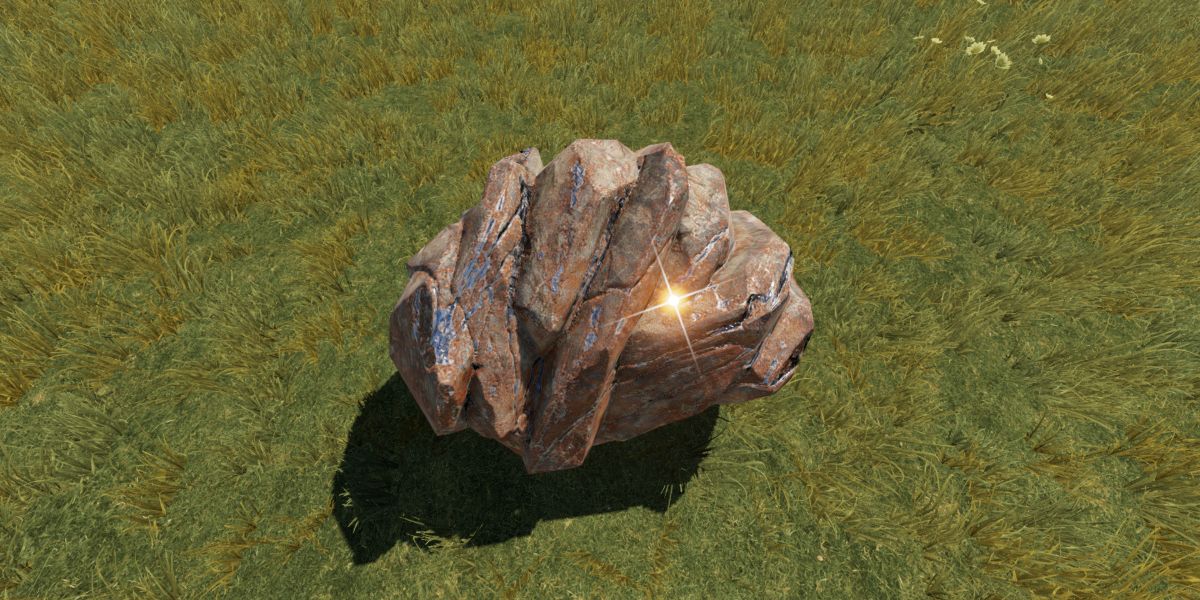
Along with scrap, metal fragments are necessary to craft dozens of important items in Rust. These fragments can be obtained in a number of ways. Metal ore can be mined from nodes that look like stone nodes, but with gray/silver veins. Melted metal ore produces metal fragments. The fragments can be found when picking up loose rocks on the ground too. Another way to acquire metal fragments is by recycling random items after looting.
- Armor And Weapons
- Research Table
- Workbench
- Sheet Metal
- Hatch
- Code Lock
- Mining Quarry
- Small Oil Refinery
- Water Purifier
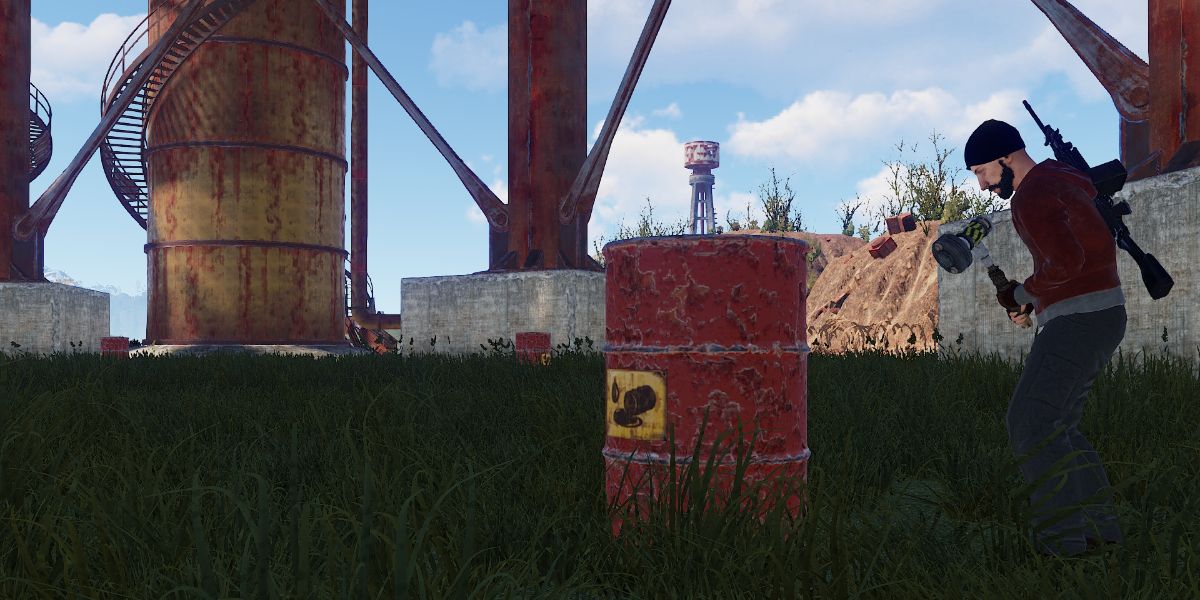
Low grade fuel powers generators to create electricity. Players will need electricity for traps, computers, code locks, and other base additions that require electricity. The fuel can be crafted using animal fat and cloth. It is also commonly found in barrel piles across the island.
- Furnace
- Lantern
- Large Med Kit
- Torch
- Syringe
- Small Oil Refinery
- Incendiary Rounds
- Survey Charge
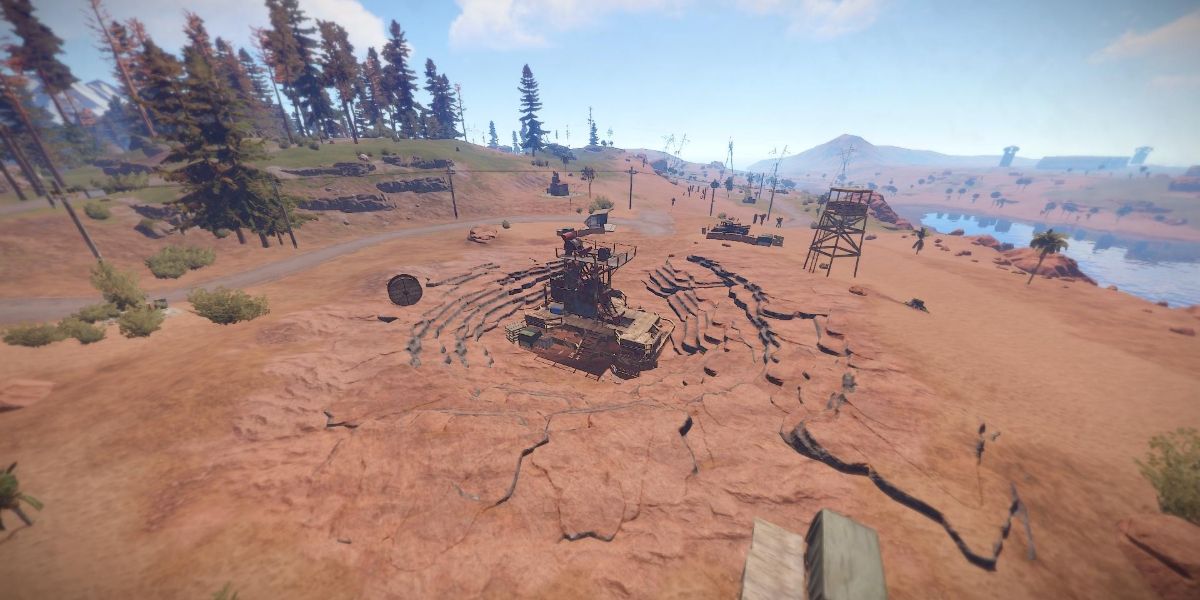
Like metal ore, the final pickaxe strike has the potential to net high quality metal (HQM). Using a pickaxe can be frustrating, however, because it will take a long time to find enough HQM for crafting purposes. Using a mining quarry and a satchel charge to loot nodes is a more effective method. Some items net HQM when recycled, but most only provide scrap and metal fragments.
- High Level Armor And Weapons
- Weapon Attachments
- Armored Doors
- CCTV Cameras
- Vending Machine
- Turrets
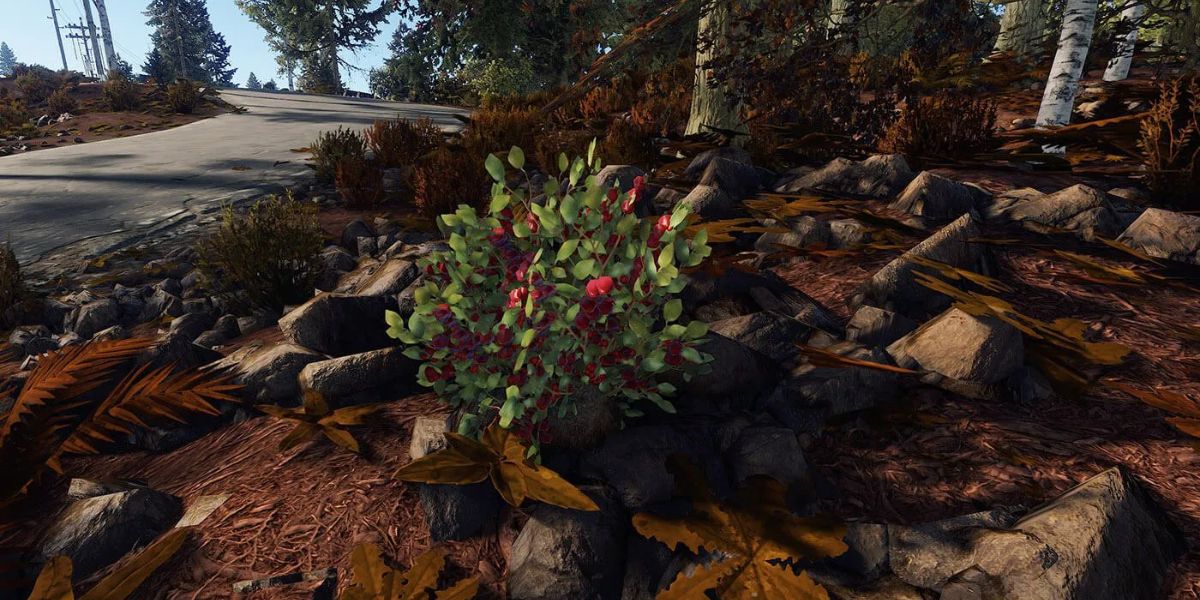
Hunger is a recurring issue for players early in the game. Berries and other consumable plants sprout near the shores of rivers across the map. Through looting monuments, players will get various other food items like chocolate bars and granola bars. The final way to get food is to hunt animals and cook their meat. Rust's fauna appears everywhere in the temperate biome. For a more detailed description of where to find food, check out our food guide here.
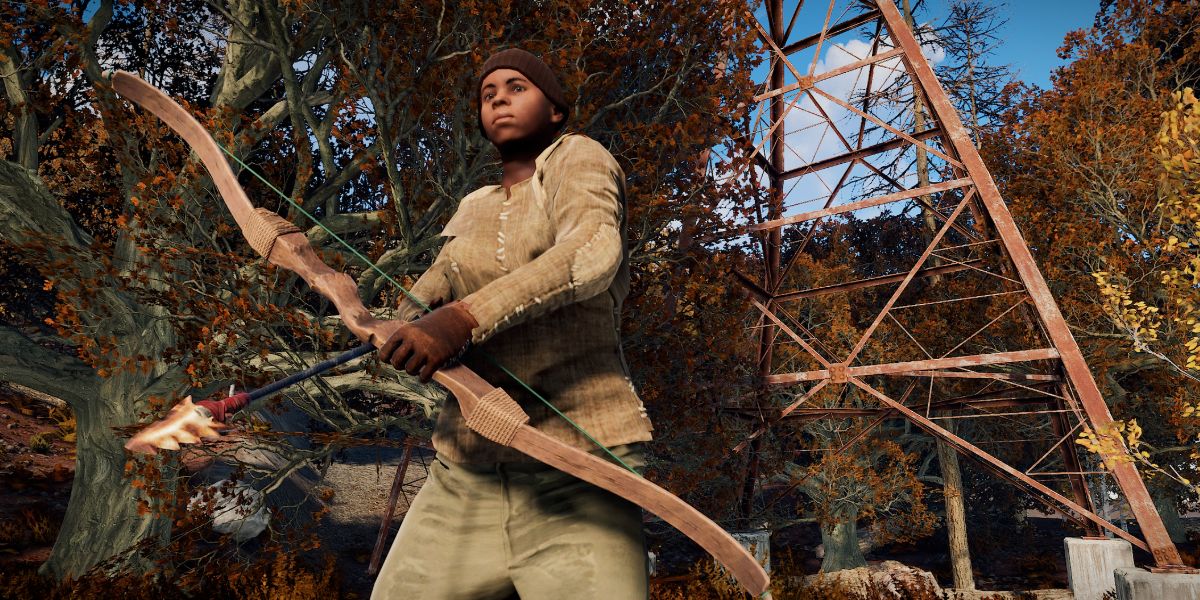
Animal Fat is most commonly used to craft Low-Grade Fuel. It can be harvested from animals or humans by using the Bone Knife/Hatchet. Even Trout yield Animal Fat after they are gutted. Killing just a few animals will net enough animal fat to craft plenty of low-grade fuel. This is another reason why hunting is underrated in Rust. Animals provide clothing, food, and fuel. Of all the animals in Rust that drop animal fat, deer are the easiest to hunt.
- Bears
- Boar
- Deer
- Horses
- Wolves
- Trout
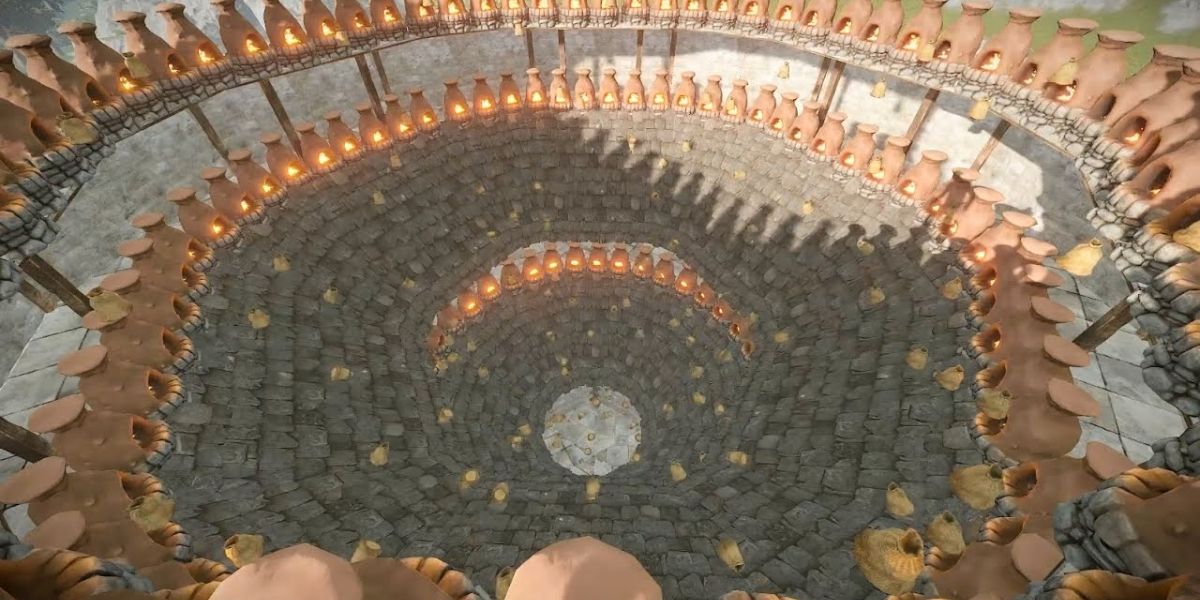
Players can get Charcoal by burning wood in either a Campfire or Furnace. Each wood provides 3/4 of a Charcoal, making it really simple to collect the resource. The Small Furnace is more efficient than the Large Furnace at producing Charcoal, so it should be used if possible. On average, gamers will receive three Charcoal for every four pieces of wood that burn up. Charcoal is an essential ingredient needed to produce Gunpowder. It is no secret that gunpowder is one of the most crucial substances in Rust, especially later in the wipe.
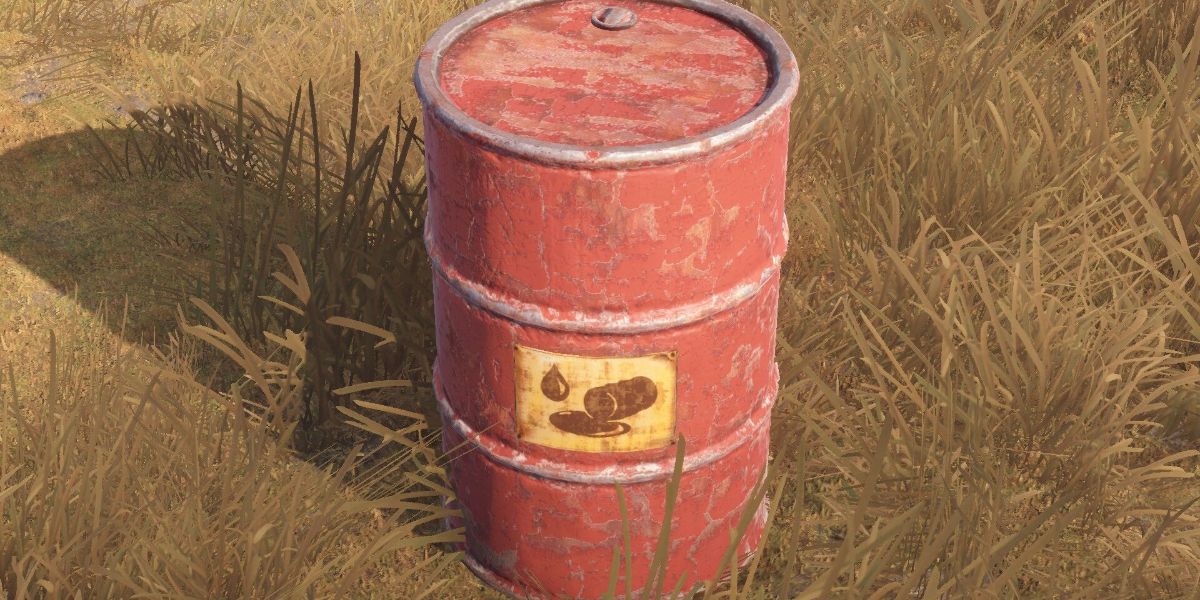
Crude Oil is a resource found in Oil Barrels and Pump Jacks. Anyone having trouble finding some should take the boat out on the coast. There are hundreds of barrels for scrap, and sometimes barrels will contain Crude Oil. Gamers can use a Small Oil Refinery to convert the Crude Oil into Low-Grade Fuel. One Crude Oil produces three Low-Grade Fuel at the cost of about seven wood per can. Alternatively, players can recycle six cans of Crude Oil for just one scrap. Confusingly, Crude Oil is not an energy source, and Low-Grade Fuel is the only usable fuel in Rust.
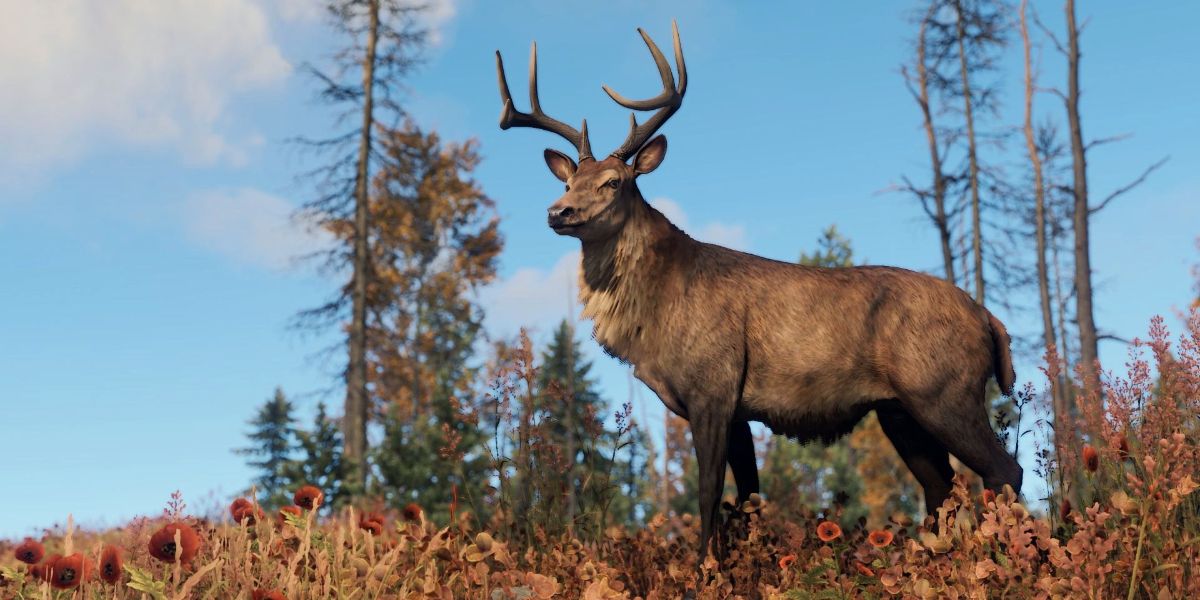
Every animal except Chickens drop Leather when killed. Gamers are unable to trade the resource or craft it. The only way to obtain it is to hunt animals. Leather is of course used to craft lower-level armor in-game, and is a valuable resource early in a wipe. Clothing is necessary to protect the user from radiation and cold in game. Radiation exists near monuments, with the larger monuments posing a greater risk than smaller ones. See below for a few of the items that are crafted with Leather.
RELATED: Rust Console Edition: How To Fix Input Lag On Consoles
- Hide Set
- Leather Gloves
- Long sleeve T-Shirt
- Metal Facemask
- Metal Chest Plate
- Road Sign Jacket
- Road Sign Kilt
- Tank Top
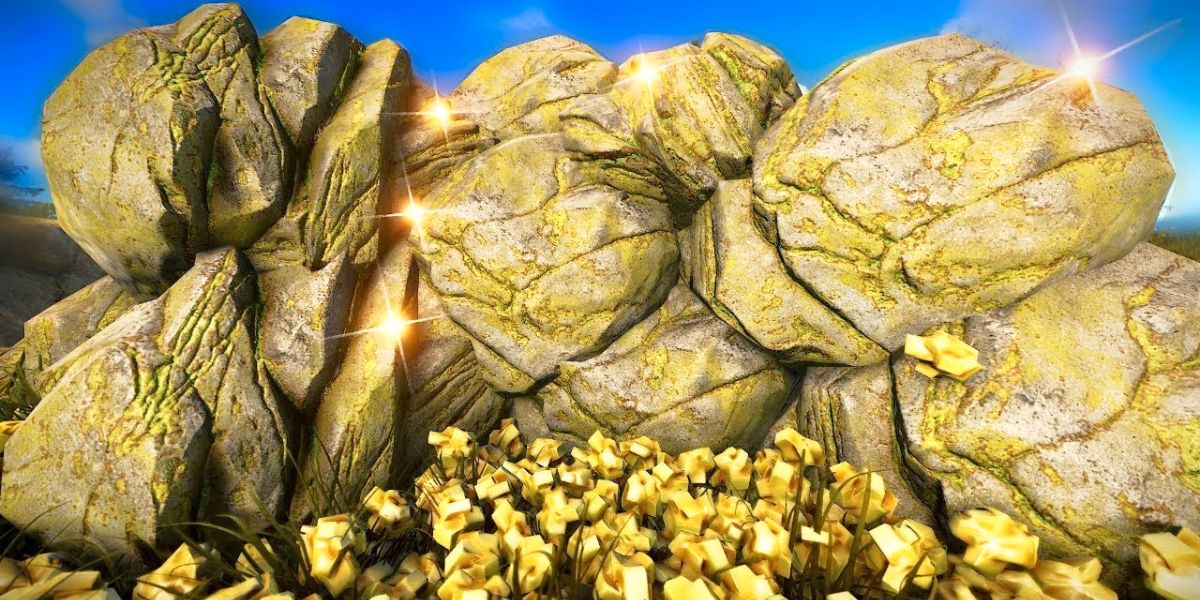
Sulfur and Charcoal combine to produce Gunpowder. Like metals in Rust, Sulfur is a byproduct of mining Rock nodes. Nodes that are rich in Sulfur can provide 100+ Sulfur Ore. The ore can them be smelted to produce Sulfur. One Sulfur Ore produces one Sulfur. Additionally, small rockpiles will often contain around 50 Sulfur if looted. Raiders will want to collect a few thousand Sulfur to produce enough explosives to infiltrate enemy bases. A few minutes of mining should do the trick.

